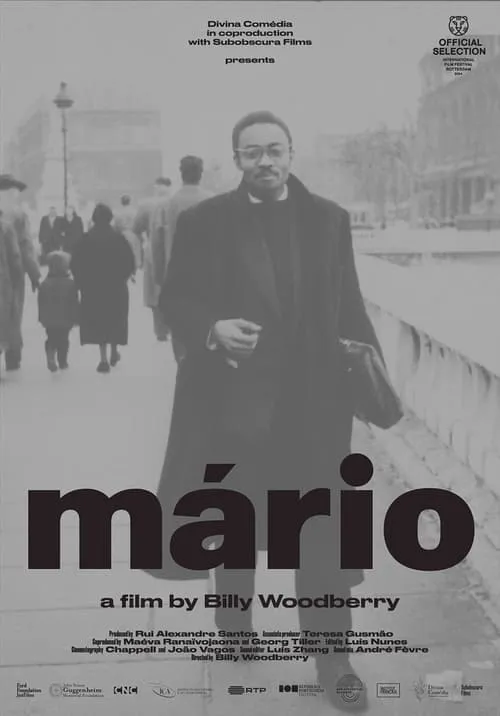Mário

Trama
Mário is a thought-provoking documentary that delves into the life and legacy of Angolan-born intellectual and revolutionary leader, Mário Pinto de Andrade. The film serves as a poignant exploration of the compromises, betrayals, and failures that inevitably plagued even the most noble and revolutionary movements, leaving the audience to ponder the complexities of politics, identity, and the human condition. Born in 1928 in the colonial city of Bengo, Angola, Pinto de Andrade rose to prominence as a key figure in the anti-colonial struggles of Africa. As a poet, writer, and intellectual, he played a pivotal role in shaping the ideological landscape of the African liberation movements, drawing heavily from Marxist and pan-Africanist ideologies. Through his work, he aimed to bring attention to the plight of the Angolan people and the brutal realities of colonial rule, which had left their mark on the lives of millions. The documentary provides vivid insight into Pinto de Andrade's early life, tracing his educational journey from Angola to Portugal to France, where he immersed himself in the works of influential thinkers, including Marx, Lenin, and Frantz Fanon. These intellectual influences not only shaped his worldview but also instilled in him a sense of purpose and duty to fight for the freedom of his people. Pinto de Andrade's activism began in the 1940s, and he quickly emerged as a leading voice in the fight against colonialism. Alongside other African intellectuals and revolutionaries, he worked tirelessly to mobilize support for the liberation movements, using his writing and poetry to inspire and galvanize his people. His work, which was characterized by its passion, conviction, and lyrical style, helped to raise awareness about the injustices faced by the Angolan people and galvanized the international community to take action. Throughout the documentary, Pinto de Andrade's personal struggles and conflicts are brought to the forefront. His complicated relationships with other revolutionaries, his experiences of exile and imprisonment, and his unwavering commitment to the cause demonstrate the complexities and nuances of his character. His unshakeable faith in the potential of the African people to liberate themselves serves as a testament to his conviction and dedication to the cause. One of the documentary's greatest strengths lies in its portrayal of the intricate web of relationships and alliances that defined Pinto de Andrade's life. His interactions with other key figures, including Amílcar Cabral and Agostinho Neto, who would go on to become prominent leaders in the Angolan liberation movement, provide a nuanced understanding of the politics and strategies of the time. The film also sheds light on the personal costs of Pinto de Andrade's activism, including his experiences of persecution, imprisonment, and exile, which took a devastating toll on his personal life. The documentary raises important questions about the nature of revolution, power, and identity. By chronicling Pinto de Andrade's life and struggles, it highlights the compromises, betrayals, and failures that often accompany revolutionary movements. Despite his unwavering commitment to the cause, Pinto de Andrade's own story is marked by tragedy and heartbreak. His struggles against colonialism, followed by the complexities and challenges of life in an independent Angola, ultimately led to a sense of disillusionment and disappointment. Pinto de Andrade's legacy is a complex and multifaceted one. As a poet, writer, and intellectual, he played a pivotal role in shaping the ideological landscape of African liberation movements. His activism inspired countless others to take up the fight against colonialism, and his legacy continues to inspire new generations of activists, writers, and intellectuals. However, the documentary also highlights the human costs of revolution, the compromises that must be made, and the inevitable failures that can accompany even the most noble of causes. Ultimately, Mário is a powerful and poignant tribute to a remarkable figure in African revolutionary history, a reminder of the complexities and nuances of politics and the human condition. The documentary encourages viewers to engage with the intricacies of revolution, power, and identity, and to consider the long-term consequences of even the most heroic of actions.
Reseñas
Recomendaciones


